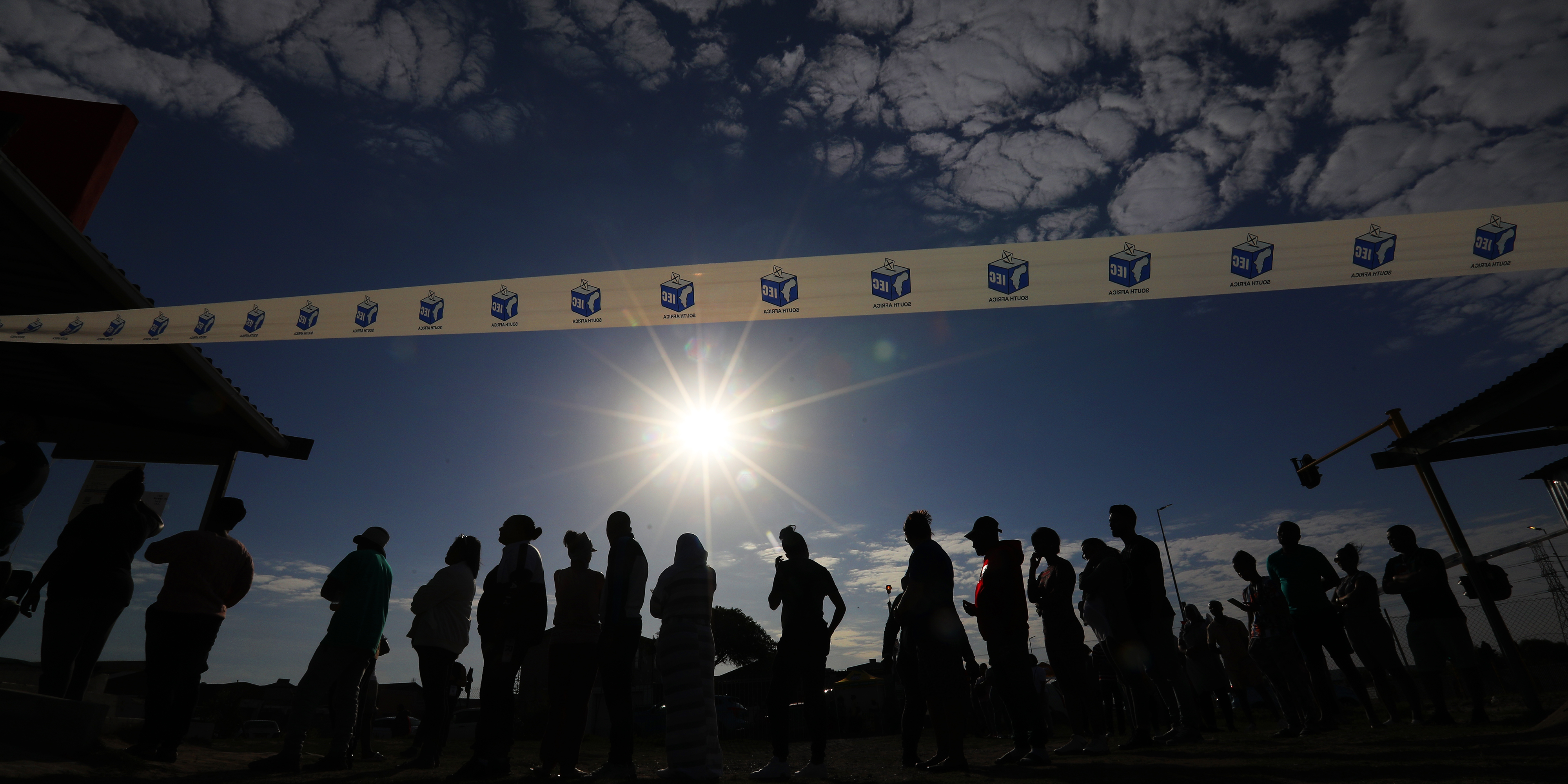Research conducted by the Human Sciences Research Council (HSRC) has found that 92% of voters which responded to its survey on voting day, believed that the 2024 general election was free and fair.
“A key response in narrating their view that the elections were free and fair was the view that there was freedom to make political choices without force, pressure or intimidation,” HSRC research director and coordinator Dr Benjamin Roberts told journalists on Friday morning, at the national results centre in Midrand.
Read in Daily Maverick: LIVE: Multi-Party Charter partners’ election results disappointing — Steenhuisen
Roberts was sharing the findings of the HSRC’s election satisfaction survey (ESS) on Friday morning. In the ESS, voters were asked a series of questions about the election process on election day, including whether the 2024 polls were free and fair. The HSRC, in its ESS, surveyed people who had already cast their ballot, and did not survey those who left the queue before voting.
The HSRC said the ESS had a margin of 1%.
Roberts said 73% of voters who responded to the ESS survey, decided to vote in these elections more than six months ago. He added that only 6% decided to vote in the last month, and 4% on the day of the elections.
According to Roberts, 63% of voters voted because they felt their vote makes a difference, while 43% of people voted because they felt it was their responsibility.
Additionally, 37% of voters voted in order to fight corruption in the country, while 38% of people voted in order to improve the economy.
Only 26% of voters voted because they liked a particular leader or candidate.
Snaking queues
According to the HSRC data findings, voters queued longer in the 2024 general elections than in the 2021 local government elections and the 2019 general elections. The HSRC found that 11% of voters waited in the queue to cast their ballots for more than one hour, while 10% waited 30 to 60 minutes in line.
Sixty per cent of voters waited 15 minutes or less in a queue.
“It appears that the queues were quite long this time around, more because of the failure of devices and things like that, [as well as] the three ballot papers, and not necessarily the numbers of people who turned out,” said HSRC executive director, Professor Narnia Bohler-Muller.
The IEC backtracked on its earlier claims of high voter turnout on Thursday night, saying that the current voter turnout was 58.69%, which is significantly lower than that of 66% recorded in 2019.
Read in Daily Maverick: Five things we know about the elections right now
With regard to the quality of service provided by the IEC staff, voters who took part in the HSRC’s survey were generally satisfied. Sixty-four per cent of respondents said they were very satisfied with the commission’s staff at the stations.
Electronic voting
The HSRC survey found that 29% of respondents strongly supported replacing paper ballots with electronic voting machines at voting stations. Curiously, Bohler-Muller said that the survey found that the longer people queued, the more in favour of e-voting.
Additionally, the survey found that 22% of respondents supported e-voting, while 15% opposed it.
Roberts said there still remains “quite a lot of scepticism” amongst the public toward e-voting.
Read more in Daily Maverick: Would electronic voting make SA’s elections easier?
“So there is this division amongst the public about whether or not it would be a good thing. That includes amongst the youth — people you’d ordinarily think would be pro-electronic voting,” he said. While many view e-voting as a convenience there are also pervasive concerns about security, he added.
In response to questions, Roberts said that the IEC is taking the possibility of electronic voting in the future seriously.
“Last year we did an initial study for the commission relating to electronic voting, looking particularly at experiences around the globe. It’s certainly not something you can walk into lightly. It is a huge change in terms of voting procedures, and it would require quite a few years to actually pilot… before it is decided whether or not to fully adopt it,” he said.
He said that the HSRC is currently in conversation with the IEC about preparing a discussion paper on electronic voting as the basis for a potential green paper on electronic voting. DM





